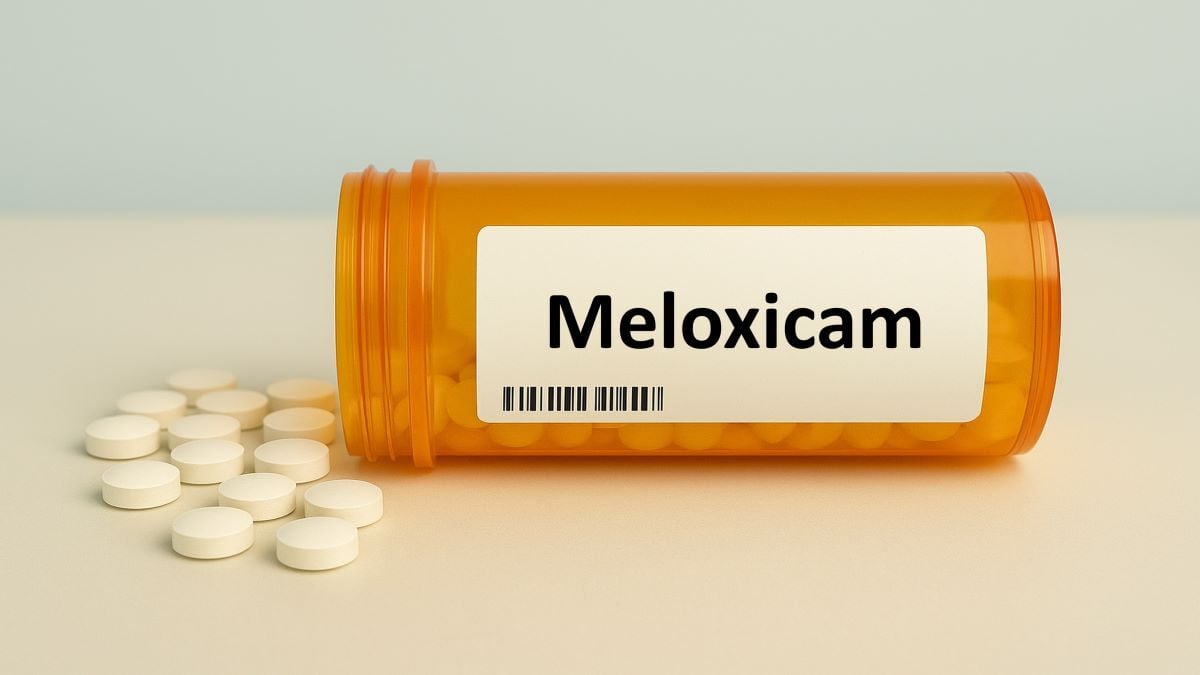Managing pain can be a challenge, and medications like Meloxicam may be a helpful tool. But it's important to be aware of potential interactions, especially when it comes to something as common as alcohol.
Let's delve into what meloxicam is, why caution is necessary when mixing it with alcohol, and the potential health risks involved. By understanding these factors, you can make informed choices that prioritize your well-being.
What is Meloxicam?
Meloxicam belongs to a group of medications called nonsteroidal anti-inflammatory drugs (NSAIDs). It's a prescription drug commonly used to treat pain and inflammation associated with conditions like arthritis. NSAIDs work by blocking the body's production of certain chemicals that trigger inflammation, ultimately reducing discomfort and improving mobility for many patients.

Why Mixing Meloxicam and Alcohol Can Be Risky
People might unintentionally combine meloxicam and alcohol for various reasons. For example, someone managing arthritis pain with meloxicam might enjoy a social drink without realizing the potential consequences. Others may underestimate the risks, thinking occasional alcohol consumption won't cause harm. It's vital to be aware of the potential health risks before mixing any medications with alcohol.

The Importance of Avoiding Alcohol and Meloxicam
Generally, combining meloxicam and alcohol is not recommended. Both substances can irritate the stomach lining, and when taken together, this irritation can significantly increase the risk of gastrointestinal issues like ulcers or bleeding. Additionally, this combination can strain the liver, potentially leading to damage over time. To prioritize your safety and well-being, it's always best to avoid alcohol while taking meloxicam. Consult your doctor for personalized advice to ensure the best course of action for your individual needs.
Potential Dangers of Mixing Meloxicam and Alcohol
Several health risks are associated with mixing meloxicam and alcohol. These include:
- Increased risk of stomach bleeding and ulcers: As mentioned earlier, both substances irritate the stomach lining, significantly upping the chances of developing these gastrointestinal complications.
- Stomach lining irritation: This can lead to discomfort, heartburn, and other digestive issues.
- Higher likelihood of liver damage: The combination of meloxicam and alcohol can strain the liver, potentially leading to long-term damage.
- Worsening of side effects like dizziness or drowsiness: This can make activities like driving or operating machinery dangerous.
- Potential for decreased effectiveness of the medication: Alcohol may interfere with how well meloxicam is absorbed by the body, reducing its pain-relieving effects.
Considering the Risks for Older Adults
The potential dangers of mixing meloxicam and alcohol are particularly concerning for older adults. As we age, our bodies process medications and alcohol more slowly, making us more susceptible to harmful side effects. Older adults are also more likely to experience gastrointestinal bleeding and liver damage, and the increased dizziness or drowsiness can raise the risk of falls and injuries. For these reasons, it's especially important for older adults to avoid the combination of meloxicam and alcohol.
Meloxicam and Alcohol Overdose:
Mixing meloxicam and alcohol can increase the risk of overdose, leading to severe health complications. Symptoms may include intense stomach pain, severe headaches, dizziness, and difficulty breathing. This combination can exacerbate gastrointestinal bleeding and significantly impair liver function. If you suspect an overdose, seek immediate medical attention. Early intervention is crucial to prevent serious consequences. Always follow your doctor's guidance regarding medication and alcohol use.

How Long to Wait Before Drinking Alcohol After Taking Meloxicam?
When taking meloxicam, it's generally best to avoid alcohol altogether. However, if you do choose to drink, waiting at least 24 hours after your last dose is advisable to minimize the risk of side effects. Consulting your doctor for personalized advice is essential, as they can provide guidance based on your specific health needs and medication regimen.
Remember, it's crucial to take meloxicam exactly as directed by your doctor to ensure its safe and effective use.
Treatment for Meloxicam and Alcohol Addiction:
Treatment for addiction involving meloxicam and alcohol involves a comprehensive approach tailored to the individual's needs and circumstances.
Here are some key components often included in the treatment process:
Medical Detoxification:
- In cases of physical dependence, a supervised medical detox may be necessary to safely manage withdrawal symptoms from both substances.
Behavioral Therapy:
- Therapies such as cognitive-behavioral therapy (CBT), motivational interviewing, and contingency management are commonly used to treat the psychological aspects of addiction. These therapies help individuals understand and change behaviors associated with substance use.
Support Groups:
- Participation in support groups such as Alcoholics Anonymous (AA) or Narcotics Anonymous (NA) provides peer support and a structured environment for maintaining sobriety. These groups offer guidance and encouragement from others who have faced similar challenges.
Medication-Assisted Treatment (MAT):
- In some cases, medications may be prescribed to help manage cravings and withdrawal symptoms. For alcohol addiction, medications like naltrexone or acamprosate may be used.
Dual Diagnosis Treatment:
- Most individuals struggling with addiction also have underlying mental health conditions. Dual diagnosis treatment addresses both substance use disorders and co-occurring mental health disorders to allow deep and lasting healing.
Holistic Approaches:
- Incorporating holistic therapies such as yoga, meditation, art therapy, and nutritional counseling can enhance overall well-being and support recovery efforts.
Aftercare Planning:
- Planning for ongoing support after initial treatment is crucial. Aftercare may include continued therapy, support group attendance, and strategies for managing triggers and preventing relapse.
Family and Social Support:
- Involving family members and loved ones in treatment can provide crucial support and improve outcomes. Family therapy helps address dynamics and issues that may contribute to substance use.
Treatment for meloxicam and alcohol addiction should be personalized for each individual and may involve various combinations of these approaches. Seeking help from qualified healthcare professionals and addiction specialists ensures that individuals receive the comprehensive care needed for successful recovery.
If you or someone you care about is struggling with addiction involving substances like meloxicam and alcohol, don't hesitate to reach out for help.
Avenues Recovery Center offers compassionate and personalized treatment programs designed to support you on your journey to recovery. Our experienced team understands the complexities of addiction and is committed to providing effective, evidence-based care in a supportive environment. Take the first step towards a healthier, substance-free life today. Contact Avenues Recovery Center to learn more about our treatment options and start your path to recovery. Your future is worth investing in – let us help you reclaim it!


